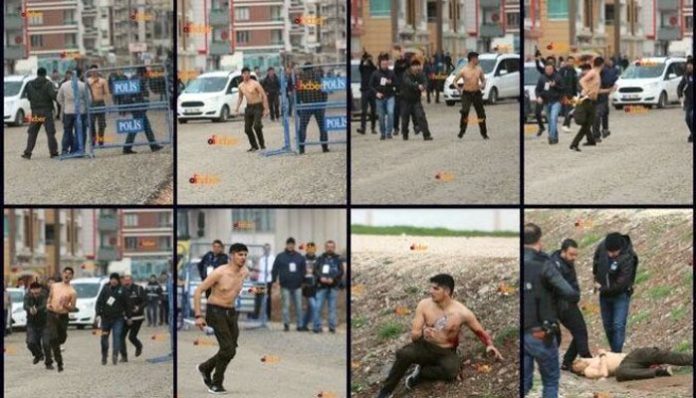A regional appeals court has ruled that no charges can be leveled against a police officer who shot a Kurdish university student to death during Nevruz celebrations in the southeastern province of Diyarbakır in 2017 and that the student’s killing took place “within the framework of the law,” the Mezopotamya news agency reported.
Kemal Kurkut, a 23-year-old student, was killed when a police officer opened fire at him after he quarreled with law enforcement at a checkpoint when he was trying to get into the festival venue on March 21, 2017, photos taken during the incident showed. Kurkut was a student at Malatya’s İnönü University and had traveled to his hometown of Diyarbakır for Nevruz celebrations. Police found poetry books and clothing in Kurkut’s backpack after he was shot on suspicion that he was a “suicide bomber.”
The police officer, Yakup Şenocak, was suspended and tried on charges of murder, facing a life sentence. The police officer was not in pre-trial detention during his trial and was reinstated to his job three months after the incident. There were conflicting forensic reports during the course of the trial, some of which said Kurkut was killed by a bullet that ricocheted off the ground, while others said he was killed by the bullet fired from Şenocak’s gun. In the last hearing of the trial in November 2017, the police officer was acquitted of the charges due to a lack of evidence.
When the lawyers for Kurkut’s family challenged the Diyarbakır 7th High Criminal Court’s decision to acquit at the Diyarbakır regional appeals court, the appeals court decided to reverse the lower court’s ruling on Şenocak, not because the lower court’s acquittal decision was wrong but because it was not well grounded.
The appeals court said it was a failing on the part of the Diyarbakır 7th High Criminal Court not to justify the police officer’s acquittal based on whether Kurkut’s killing was legal or not.
The court said Kurkut’s killing took place within the framework of the law under the 24th Article of the Turkish Penal Code (TCK), which suggests that a person enforcing the law cannot also be punished under the law on the duties of the police, which grants them the authority use force and lethal force in certain cases.
The court said the killing of a person when their appropriate detention or prevention from fleeing are not possible cannot be considered a violation of the right to life.



